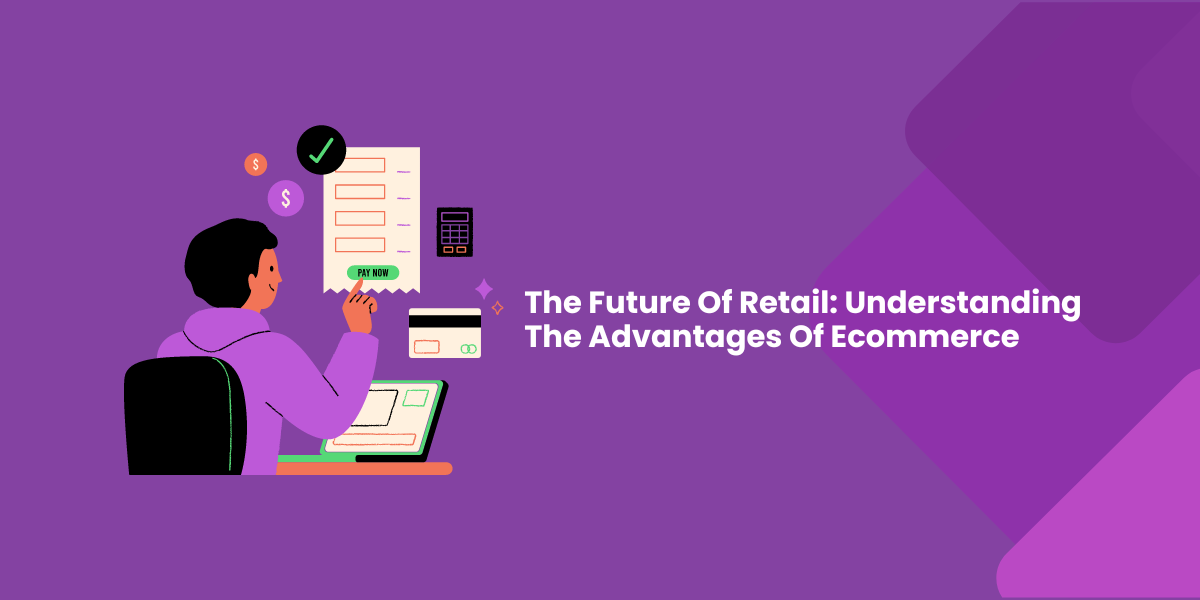In today’s digital-first world, the landscape of retail is undergoing a remarkable shift. With traditional brick-and-mortar stores facing challenges like decreased foot traffic, businesses are increasingly turning to ecommerce as a vital component of their strategy. Understanding the advantages of ecommerce is crucial, as it offers numerous and transformative benefits that can drive growth and profitability for modern businesses. This article delves into the key advantages of ecommerce and explains why embracing online platforms is essential for success in today’s competitive market.
1. Global Reach and Market Expansion
One of the most significant advantages of ecommerce is the ability to reach a global audience. Unlike physical stores constrained by geographical limitations, ecommerce allows businesses to tap into new markets worldwide. This expanded reach enhances brand visibility and opens up opportunities for increased sales and revenue. By leveraging digital marketing strategies, businesses can attract and engage customers from diverse locations, broadening their market presence and driving growth.
2. 24/7 Accessibility
Ecommerce platforms operate around the clock, providing customers with the convenience to shop at any time and from anywhere. This constant availability is a major advantage, allowing businesses to cater to customers across different time zones and varying schedules. The ability to operate 24/7 not only maximises sales opportunities but also improves customer satisfaction, as shoppers can browse and make purchases whenever they prefer.
3. Cost Efficiency
Running a physical store involves numerous expenses, including rent, utilities, salaries, and inventory management. In contrast, ecommerce businesses often benefit from lower overhead costs. By eliminating the need for a physical storefront, businesses can reduce expenses and allocate resources more effectively. Additionally, automation of processes like order management and customer service further reduces operational costs, enabling businesses to reinvest savings into growth and development.
4. Personalised Shopping Experience
Ecommerce platforms provide valuable customer data that businesses can use to deliver a highly personalised shopping experience. By analysing customer behaviour, preferences, and purchase history, businesses can tailor product recommendations and marketing messages to individual needs. This personalization enhances the shopping experience, fosters customer loyalty, and encourages repeat purchases, ultimately contributing to long-term success.
5. Data-Driven Insights
The power of data in ecommerce cannot be overstated. Modern ecommerce platforms offer robust analytics that provide insights into customer behaviour, sales trends, and marketing effectiveness. Businesses can use this data to make informed decisions, optimise strategies, and improve operations. By leveraging data-driven insights, companies can identify high-performing products, address customer pain points, and enhance overall business performance.
6. Enhanced Customer Engagement
Ecommerce platforms offer various ways to engage with customers and build lasting relationships. Through social media integration, email marketing, and loyalty programs, businesses can create multiple touchpoints with their audience. These engagement strategies help businesses connect with customers on a personal level, provide relevant content and offers, and foster trust and loyalty. Implementing loyalty programs also encourages repeat purchases and enhances customer retention.
7. Scalability and Flexibility
Ecommerce provides unparalleled scalability and flexibility compared to physical stores. Businesses can easily expand their operations, add new products, or enter new markets without significant investments. Ecommerce platforms allow for rapid adaptation to market changes, making it easier to scale operations and explore new opportunities. This flexibility is especially valuable for businesses experiencing growth or seeking to diversify their offerings.
8. Efficient Inventory Management
Many ecommerce platforms come with built-in inventory management tools that help businesses track stock levels and streamline supply chain operations. Real-time inventory insights prevent stockouts and overstock situations, improving cash flow and reducing carrying costs. Additionally, just-in-time inventory systems minimise the need for large storage spaces and associated costs, further enhancing operational efficiency.
9. Diverse Marketing Channels
Ecommerce enables businesses to access a wide range of digital marketing channels, including social media, email marketing, SEO, and PPC advertising. These channels offer effective and efficient ways to reach target audiences and drive traffic to online stores. By utilising a mix of digital marketing strategies, businesses can create comprehensive campaigns that attract and convert visitors, maximising their online presence and sales potential.
10. Lower Barriers to Entry
Starting an ecommerce business often requires less upfront investment compared to traditional retail. Entrepreneurs can launch online stores with minimal costs, using dropshipping or third-party fulfilment services to reduce initial expenses. This lower barrier to entry fosters competition and innovation, making it easier for new businesses to enter the market and compete effectively.
11. Environmental Impact
E Commerce also offers environmental benefits, which resonate with today’s eco-conscious consumers. By reducing the need for physical storefronts and minimising transportation and packaging, ecommerce businesses can lower their carbon footprint. Additionally, digital receipts and invoices reduce paper waste, contributing to a greener economy and appealing to environmentally aware customers.
Conclusion
The advantages of ecommerce are clear and compelling, offering numerous benefits that can drive growth and profitability for modern businesses. From global reach and 24/7 availability to cost efficiency and personalised customer experiences, ecommerce provides a wealth of opportunities for businesses to thrive in the digital age. For companies looking to stay competitive and achieve sustainable growth, embracing e-commerce is not just a strategic choice but a necessity. By understanding and leveraging these advantages, businesses can optimise their operations, enhance customer engagement, and build a successful online presence in today’s dynamic market.

Leave A Comment